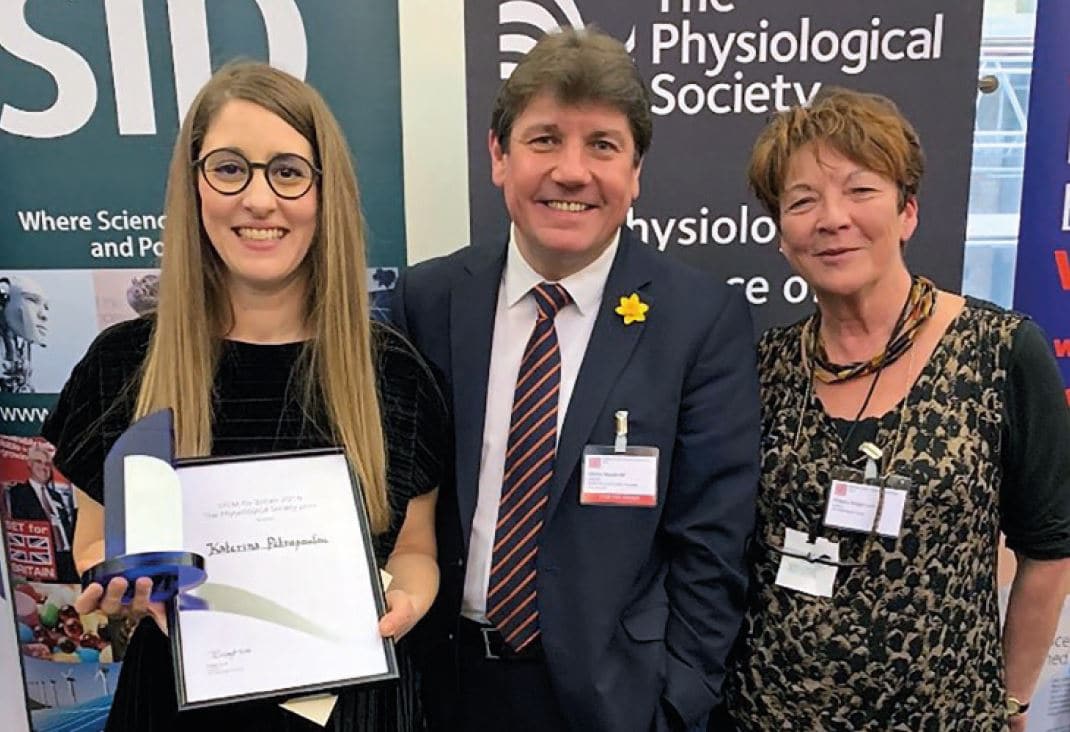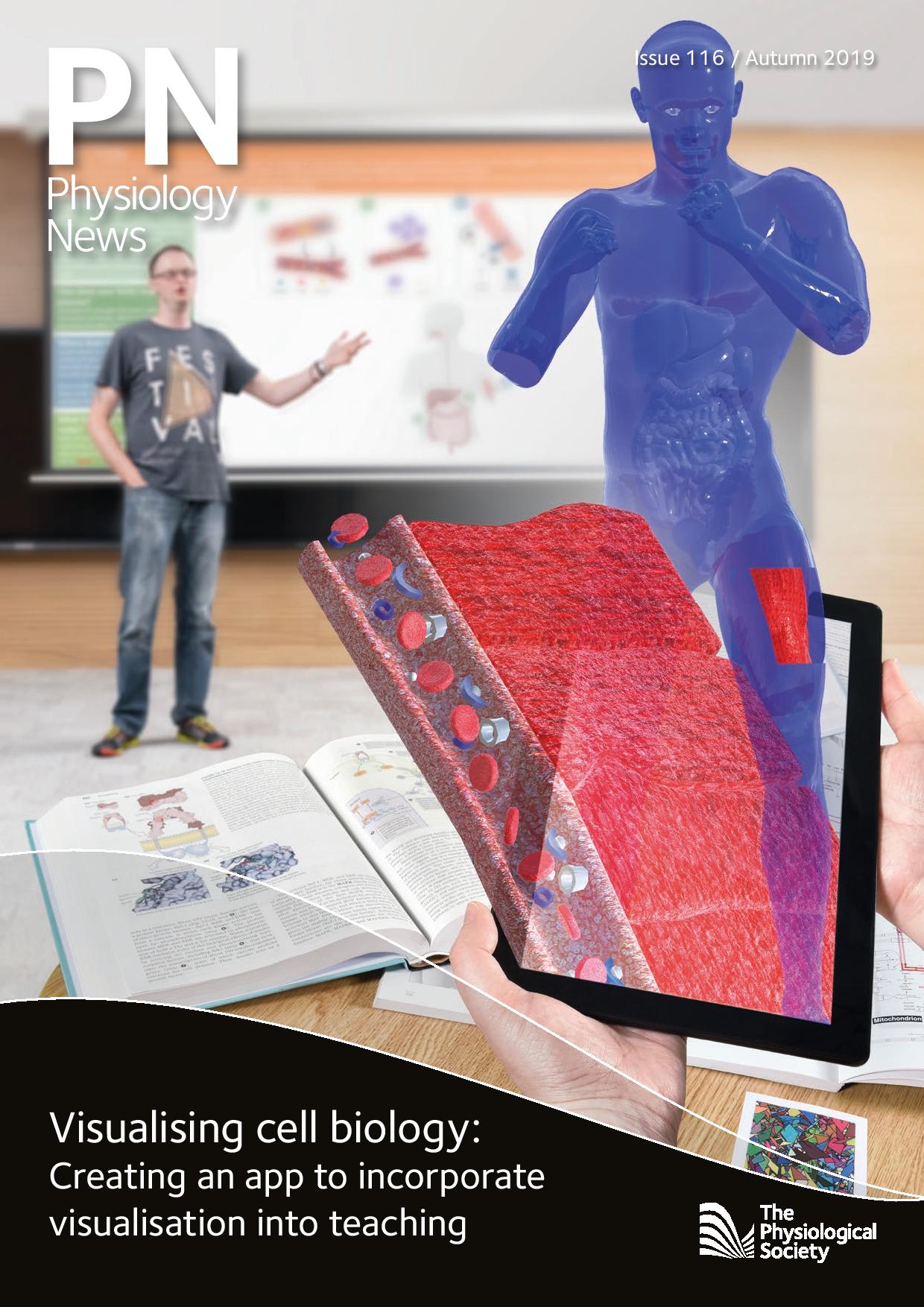
Physiology News Magazine
STEM for Britain 2019: Preventing type 2 diabetes using wrinkled peas
Membership
STEM for Britain 2019: Preventing type 2 diabetes using wrinkled peas
Membership
Katerina Petropoulou, Imperial College London, UK
https://doi.org/10.36866/pn.116.46
Exploring ways to present important and novel scientific results and methods to lay audiences is a key part of a scientist’s job. My participation in the STEM for Britain 2019 competition allowed me to appreciate the importance of communicating and popularising science. As a PhD candidate, I had the opportunity to present my work entitled “Unique food structures and their effects on glucose homeostasis” and I was honoured to receive the Inaugural Physiological Society Prize.
In 2017, there were over 3.7 million people in the UK diagnosed with type 2 diabetes (T2D) and rates are expected to rise to 5 million by 2025. The risk of T2D is thought to increase with age because of poor control of blood glucose levels. This in turn is due to a progressive decline in the capacity of cells in the pancreas (beta-cells) to secrete insulin, the hormone that controls glucose levels. The decline in beta-cell function can be accelerated by poor diet and lifestyle, thus increasing the risk of developing T2D. Epidemiological and clinical evidence suggests that changes in the diet and lifestyle can prevent or delay the development of T2D.
Nevertheless, despite national campaigns to promote healthy eating, T2D diagnosis rates continue to rise. An alternative dietary strategy to maintain normal blood glucose rates at the population level is to improve the composition of commonly consumed foods. There is much evidence that diets rich in a type of carbohydrate called resistant starch have a positive impact on controlling blood glucose levels, and hence reduce susceptibility to T2D. Resistant starches, as the name suggests, are not completely digested in the upper parts of the digestive tract and are available for fermentation by bacteria in the colon. The products of fermentation, known as short-chain fatty acids (SCFA), are thought to improve beta-cell function and thus insulin secretion. There are a variety of fruits and vegetables that contain various amounts of resistant starch, but UK diets are generally low in resistant starch. Thus, there is great potential to reduce the incidence of T2D in the long term by promoting the widespread consumption of resistant starch.

My research focuses on wrinkled peas, a range of naturally occurring variants of peas known to contain different types of resistant starch and less available carbohydrate content. In a series of state-of-the-art experiments, I recruited healthy volunteers, gave them a meal including wrinkled peas (rr peas), and in a series of control experiments smooth peas (RR peas), and I examined: (i) how resistant starch affects the rate at which ingested food moves through the stomach and gastrointestinal tract; (ii) how resistant starches influence the digestion of food in the stomach and gastrointestinal tract; (iii) how resistant starch fermentation in the colon affects metabolism and glucose levels; and (iv) if resistant starch from peas improves beta-cell function. To study the acute effect of food processing and associated health outcomes, we repeated the experiments using pea flour. To further investigate the impact of long-term consumption of resistant starches on glucose responses, I recruited a group of volunteers and asked them to consume pea hummus (rr and RR type) and mushy peas (rr and RR type) for a period of 4 weeks.
As a scientist in the field of human nutrition I was grateful to win this prize and for the new exciting opportunities that have been offered to me. Apart from The Physiological Society prize I have also received an Affiliate membership with The Society and have been invited to join The Physiological Society’s Membership Review Task and Finish Group. Also, as a winner of The Physiological Society prize, I was invited to Parliamentary Links Day, one of the largest science events of the annual Parliamentary events. My participation in the STEM for Britain competition was one of the highlights of my doctoral studies, and I would strongly encourage early career researchers and PhD candidates to participate and present their work.
